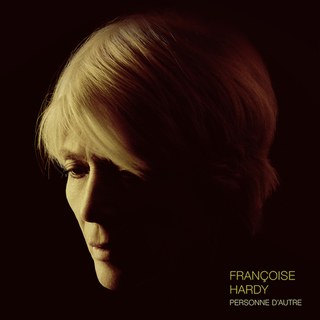Françoise HardyPersonne d’autre
Her first album since 2012 is a reflective, characteristically elegant session, surveying the singer’s advancing years in calm repose.
With her first album in six years, the characteristically elegant
Personne d’autre, Françoise Hardy finds herself among the last surviving icons of a certain kind of French pop. Her tone of absent-minded infatuation is tangled up in Parisian iconography; her voice tells us about France in the way Marilyn Monroe’s walk tells us about America. Hardy, too, makes her talent seem effortless, though her longevity hasn’t come by chance. Rather than courting fame, she’s spent the last half-century collaborating sparingly and shunning lucrative indulgences like touring and the services of Serge Gainsbourg, whose dream of a full-length behind their 1968 collaboration “Comment te dire adieu” she declined to fulfill. What she won instead was license to write her own history.
To many Anglophones, that history is largely unrecognized, which is a shame. Across Hardy’s 30 or so albums are intermittent flashes of brilliance, defying the received wisdom of a steady post-’60s decline. Her spare, haunting 1971 LP,
La Question, might be the first truly personal Françoise Hardy record; 1973’s
Message Personnel, contains baroque-pop triumphs like “L’amour en privé.” As recently as 1996, Hardy was resetting the bar with
Le Danger, which casually invented adult-contemporary space rock—appropriate, given that she’d begun moonlighting in astrology literature—but landed with a commercial thud.
Personne d’autre (
Nobody Else in English) is the latest in a string of minor releases that form an epilogue to the 74-year-old singer’s legacy. On these 12 mortality-facing songs, there are moments when her breath thins to a wisp, circulating through the tasteful tapestries of songs like “Le Large” (translated here as “Sail Away”) and the Michel Berger cover “Seras-tu là” (“Will You Be There”). When she sings to a lost loved one, on “You’re My Home,” that “I would fight every day/Just to show you I am strong,” the calm in her voice doesn’t conceal the weight of the effort.
Hardy survived a major health crisis after her last album, 2012’s
L’Amour Fou, and on the new LP she surveys her advancing years in repose, without the macabre flourish of, say, Jacques Brel’s curtain call,
Les Marquises. Written and recorded with Erick Benzi (once a composer for Céline Dion), it’s a reflective session in sound and subject. Their formula offers few surprises—a saccharine tribute to Hardy’s husband Jacques Dutronc, “Train Spécial,” ticks the armchair-nostalgia boxes—though Hardy occasionally finds a niche to make her own.
Take “Dors mon ange” (“Sleep, My Angel”), Hardy’s adaptation of a 2005 obscurity by Poets of the Fall, a broody Finnish clan given to overwrought, minor-key proclamations. Apparently deeming their lyrics insufficiently melodramatic (“Let your dreams flood in/Like waves of sweet fire,” goes the original chorus) this version adds another shroud of gloom. “She screams, “I’m so afraid,’” Hardy sings in French, as the song’s apparently suicidal subject, “‘The machine races out of control/And it’s going to hurt.’”
This blunt narrative ought to sound contrived, but Hardy’s gift for delicate phrasing is defiantly alluring. She conveys sympathy in every word, like a benevolent monarch surveying a faded empire, and sings in the plainspoken yet luminous way that she’s made iconic. It’s as if she’s saying, this is simply the way things are, and they’re quite beautiful enough.
Source : https://pitchfork.com/reviews/albums/francoise-hardy-personne-dautre/















